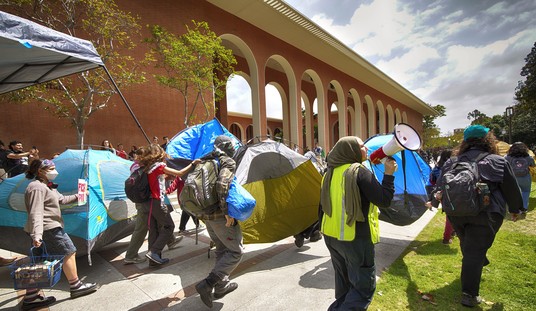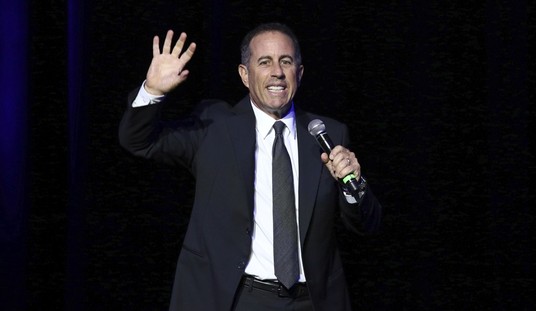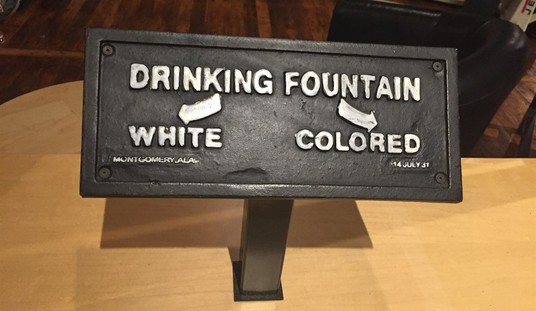Rush Limbaugh spent part of the morning justifying Donald Trump’s trillion-dollar infrastructure program. Neither man has apparently ever heard of Bastiat or Henry Hazlitt. That’s why Rush can’t explain why this boondoggle is a problem.
It’s OK. I’ll explain it, since Rush won’t.
Here’s Rush:
If Trump actually follows through on this trillion dollars to modernize airports, you’re gonna have conservative arguments against it claiming this is not how it works. This is still federal spending, it’s still budget busting, it’s still massively expanding the government. However, there will be tangible results that will result in improved and modernized airports, which will make them more economically booming, which they will then be able to attract more traffic, more landings and takeoffs, which include fees, more cargo being moved back and forth through them. So it’s gonna be an interesting philosophical argument. The idea of conservatism and smaller government, less government.
And then on the other hand, the projects we’re talking about . . . who builds them? I mean the federal government built the interstate highway system. It was a federal government expense. Same thing with those two bridges. They did it in connection with the states, I mean, there was, there was a lot of cooperation on all of these, the Hoover Dam in Nevada, and so forth. And there were other things. And don’t forget, even prior to that, we did the Panama Canal, even prior to the 1930s.
The point is, in the past, with a much smaller economy, and a much lower standard of living, we have been far more productive. We have built many more projects at a much faster rate before all the environmental impact studies were necessary, and all this. And if Trump does this and if there are witnessable, demonstrable results of modernization at airports, you’re gonna be hard-pressed to get people to find a problem with it.
What are you frowning at me for? If, well, of course it could backfire, but on the other hand, don’t forget my three initials FDR. FDR doing all this stuff gave the Democrat party a 50-year guaranteed majority. Well, that was his dream, it didn’t actually work out to 50 years, but he made the Democrat party a majority party.
Remember: Trump’s not a conservative. So small government, less government, that’s not how he sees things. And I’ve tried to tell people this from the beginning of the campaign. He does things and says things that sound conservative, and he’s gonna do things that sound conservative. He’s gonna also do things that are not gonna look conservative. ‘Cause he’s not an ideologue. He’s a results guy and get things done. And he’ll look at that trillion dollars as an investment, and he’ll tabulate a way of having, of showing that it paid off. Even though the philosophical, theoretical discussion will argue against it.
Rush tried to warn us, you guys! He told us Trump was not conservative! We shoulda listened to Rush!
Except Rush never really seemed to be warning us. He always seemed to be justifying Trump’s non-conservative ideas — just like he does today.
Rather than explain why it’s wrong, he simply declares that the pointy heads will have their theoretical discussions, but Trump will call it an “investment.” If that word sounds familiar, that’s because it’s the word that Obama and the other Democrats always use to describe government spending. Why is Rush Limbaugh justifying a Democrat code word for spending?? Next thing you know, Trump will be proposing a tax increase on the wealthy, and Rush will tell us that all Trump is doing is “asking the wealthy to pay a little more.” Good gravy.
OK, I’m going to do what Rush should have done here, and explain why increased government spending is not always good, even on infrastructure.
The first argument is that we are about $20 trillion in debt, with tens or hundreds of trillions more in unfunded liabilities, and this is all taxation on our children, who can’t vote against it. It’s taxation of future generations without representation, and it’s unAmerican.
The second problem — and I hate to sound like a broken record here — has to do with Bastiat’s principle of the seen and unseen. Look at what I have bolded above. Much of Rush’s argument here revolves around the idea that there will be “tangible results” — that “if there are witnessable, demonstrable results” then “you’re gonna be hard-pressed to get people to find a problem with it.”
In other words, there will be results that can be seen. But this requires taxation, which prevents private citizens from doing other things with the money, and that is the unseen. In his fantastic book Economics in One Lesson, Henry Hazlitt explained the logic with respect to a publicly funded bridge:
Two arguments are put forward for the bridge, one of which is mainly heard before it is built, the other of which is mainly heard after it has been completed. The first argument is that it will provide employment. It will provide, say, 500 jobs for a year. The implication is that these are jobs that would not otherwise have come into existence.
This is what is immediately seen. But if we have trained ourselves to look beyond immediate to secondary consequences, and beyond those who are directly benefited by a government project to others who are indirectly affected, a different picture presents itself. It is true that a particular group of bridgeworkers may receive more employment than otherwise. But the bridge has to be paid for out of taxes. For every dollar that is spent on the bridge a dollar will be taken away from taxpayers. If the bridge costs $10 million the taxpayers will lose $10 million. They will have that much taken away from them which they would otherwise have spent on the things they needed most.
Therefore, for every public job created by the bridge project a private job has been destroyed somewhere else. We can see the men employed on the bridge. We can watch them at work. The employment argument of the government spenders becomes vivid, and probably for most people convincing. But there are other things that we do not see, because, alas, they have never been permitted to come into existence. They are the jobs destroyed by the $10 million taken from the taxpayers. All that has happened, at best, is that there has been a diversion of jobs because of the project. More bridge builders; fewer automobile workers, television technicians, clothing workers, farmers.
But then we come to the second argument. The bridge exists. It is, let us suppose, a beautiful and not an ugly bridge. It has come into being through the magic of government spending. Where would it have been if the obstructionists and the reactionaries had had their way? There would have been no bridge. The country would have been just that much poorer. Here again the government spenders have the better of the argument with all those who cannot see beyond the immediate range of their physical eyes. They can see the bridge. But if they have taught themselves to look for indirect as well as direct consequences they can once more see in the eye of imagination the possibilities that have never been allowed to come into existence. They can see the unbuilt homes, the unmade cars and washing machines, the unmade dresses and coats, perhaps the ungrown and unsold foodstuffs. To see these uncreated things requires a kind of imagination that not many people have. We can think of these nonexistent objects once, perhaps, but we cannot keep them before our minds as we can the bridge that we pass every working day. What has happened is merely that one thing has been created instead of others.
I suppose this is the sort of pointy-headed theorizing that Rush airily dismisses. But it’s not mere theorizing. It’s economic reality. By way of analogy: communism doesn’t work — and the reasons might sound like ivory-tower economic theory, right up until millions starve to death.
And I guarantee you, if we spend a trillion dollars that we don’t have, all these pointy-headed theoretical concerns are going to get very real. Jobs will be lost. The economy will spiral downward.
Of course, people won’t realize why. But I just told you why. It just takes some imagination to realize it.












Join the conversation as a VIP Member